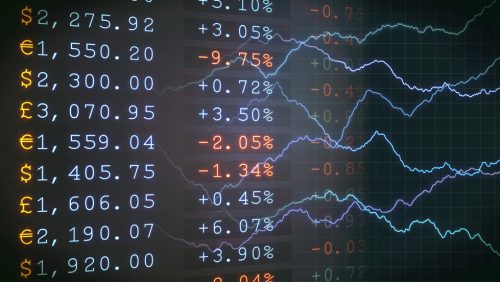Applications Now Open
MS in Applied Economics
MS in Applied Economics Program Overview
Part business, part social science, economics is an incredibly broad field with more career opportunities than most people first realize. Economists can work in state and federal government, in research and development, and in finance and insurance—and it’s a field in high demand. The U.S. Department of Labor expects demand to increase faster than the average occupation through 20301.
With its range of electives, the Johns Hopkins MS in Applied Economics gives you the flexibility to design a degree plan that fits your professional goals and economic interests, such as:
- Environmental economics
- Financial economics
- Health economics
- International economics and development
- Spatial economics
- Public policy
You’ll gain plenty of practical experience in quantitative methods, and you will explore emerging areas like machine learning.
Study on Your Terms
Your career keeps you busy, and we designed our graduate program with that in mind. We offer courses online and on-campus, and you can attend school on a full- or part-time basis.
In-Depth Article
Applied Economics vs. Financial Economics: Which is Right for You?
Exploring a graduate degree in economics? You might be weighing the benefits of a master’s in applied economics versus a master’s in financial economics.

James Knable ’17, MS in Applied EconomicsI wanted to pivot my career to focus on economics and public policy. The degree led me to the Office of Management and Budget as a Presidential Management Fellow and policy analyst.
Why to Pursue an MS in Applied Economics at Hopkins
Experienced and Acclaimed Faculty
Our faculty members are acclaimed scholars and accomplished practitioners. Their analytical and policy experience spans the public and private sector, from institutions like the Federal Reserve and agencies like the FTC and USDA to financial and consulting firms.
What You Will Study
Develop analytical skills and a solid foundation in economics in your core classes. Then, let your career interests guide your electives: Choose from behavioral economics, international trade, machine learning in statistics, game theory and dozens more.
Complementary Credentials
Customize your studies of applied economics by pursuing two credentials at once and you may find exactly the right educational focus to help you to advance your career. In addition, these combinations will help you to earn the credentials in less time than if pursued separately.
Applied Economics News
Take the Next Step
Gain the analytical skills you need to help decision-makers make sound decisions. Learn more about the Johns Hopkins' flexible MS in Applied Economics.
Contact Us for More Information
Advanced Academic Programs Admissions
Sources
The salary data for potential applied economics career options are from the U.S. Bureau of Labor Statistics, Occupational Outlook Handbook:
1 “Economists: Summary.” Accessed online on November 19, 2021.







